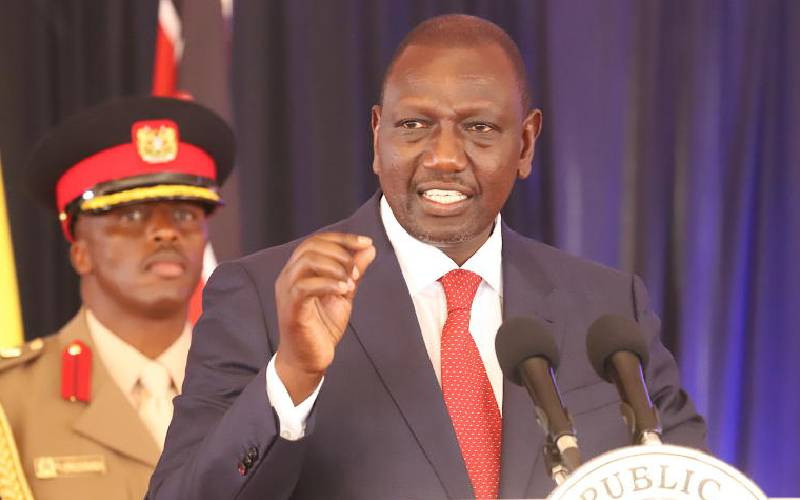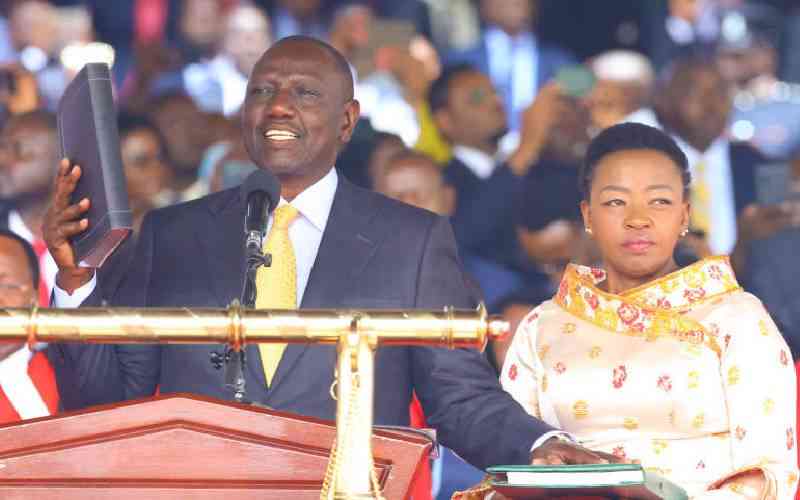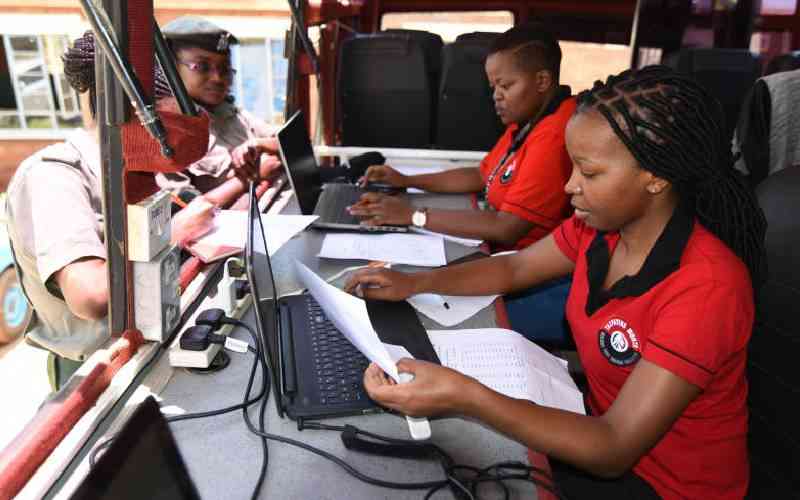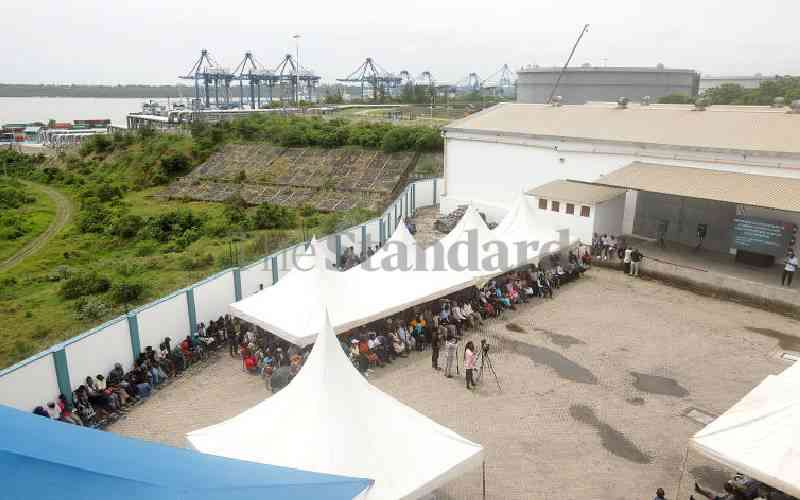
Pressure is mounting on President William Ruto's administration to urgently address the runaway cost of living that is squeezing Kenyan households.
President Ruto had pledged to bring down the cost of living in his first 100 days in office if he won the August 9 presidential election.
Three months and nine days today since he was sworn into office, Kenyans are still confronting the challenge of high food prices.
"The new administration has dismal outcomes with respect to the cost of living," says university Economics lecturer Samwel Nyandemo. "On average the people are worse off with the removal of food and fuel subsidies."
President Ruto announced the removal of the fuel and food subsidy programmes on September 13 when he was sworn into office, terming them unsustainable.
The International Monetary Fund (IMF), which supports Kenya with direct budgetary financing, has also maintained that the fuel subsidy has negative impacts on the economy and has backed its scrapping.
Former President Uhuru Kenyatta's government had turned to subsidies to cushion Kenyans against a surge in the cost of living.
- Ruto remains mute as healthcare crisis worsens
- Government calls on KMPDU to end strike
- Ruto meets KMPDU officials, promises lasting solutions to end industrial strikes
- Ruto forms a 20-member team to audit healthcare resources
Keep Reading
And now, a Nairobi-based charity organisation, Oxfam, says the new government needs to take urgent action to tackle the rising food prices, which are ramping up pressures on millions of households around the country.
"Withdrawal of subsidies on fuel and basic commodities by the new administration after assuming power increased prices of food, transport and basic commodities, further contributing to making life harder for many Kenyans and worsening inequality at a time many Kenyans are hugely affected by the prolonged drought and high food prices," says Oxfam Kenya Director John Kitui.
According to Oxfam, Kenya is facing a dire inequality crisis.
"The recent shocks like drought, Ukraine war, and Covid-19 are mere triggers," says Dr Kitui.
"Kenya exhibits a GDP growth that is not creating jobs, improving incomes of employees, or lowering the cost of living as it is a growth that is concentrating on wealth with ever greater incomes and wealth accruing to a few individuals while the majority of Kenyans are losing out."
Increase food production
Ruto, then facing stiff competition from his then rival Raila Odinga in the race to succeed President Uhuru Kenyatta, had said that in his 100 days in office, he would prioritise investments in agriculture to increase food production locally and wean the country off expensive food imports.
He had promised to support the establishment of agro-processing industries for farm inputs such as animal feeds and fertilisers, blaming the current food shortages on the previous government's decision to remove subsidies and failure to implement food security policies under the former president's Big Four Agenda.
"The challenge of the high cost of living can be dealt with by investing in agriculture, period. Explanations about Ukraine, I don't know what, are tall tales," he had said in one of his campaign rallies.

Food prices, which had already been pushing higher during the pandemic due to Covid-19 disruptions and weather woes, took another jump higher when Russia's invasion of Ukraine roiled supplies of grains and oils.
The first 100 days often give an indication of a president's management style, priorities, and speed in implementing campaign promises.
With the 100 days critical milestone passed, Kenyans continue to endure a sustained high cost of living amid a weakening shilling.
The price rises, partly fuelled by the economic fallout unleashed by the war in Ukraine, have deepened problems triggered by the Covid-19 pandemic, stalling wages and youth unemployment.
Official data released recently showed the cost-of-living crisis eased slightly in November.
The Kenya National Bureau of Statistics (KNBS) data showed that inflation slowed from 9.6 per cent in October to 9.5 per cent in November amid sustained high prices of essential commodities.
The shilling on Monday hit an all-time low against the dollar at 123.0471, signalling inflation and higher cost of imported goods, which are set to become a political headache for the new government.
The sustained high cost of living has hurt more Kenyans, such as Damaris Wamuyu, a single mother of six, who has earned a living doing laundry in the sprawling Githogoro slum in Kiambu County for over seven years.
Even though her earnings were meagre, she was always able to provide her children with two or three meals a day. But not anymore.
Like her, many fellow poverty-stricken slum dwellers in Githogoro - which neighbours the posh Runda Estate, where thousands of workers go to offer menial roles for the super-rich - are feeling the pinch of the high cost of food and other commodities, which have skyrocketed globally.
Ms Wamuyu, the sole breadwinner in her family, says she is unable to afford their upkeep.
"I am unable to buy basic essentials like maize flour and cooking oil because their prices have gone up beyond my reach," she says, capturing the feeling across many Kenyan households that have been pushed into a tight corner by ever-rising costs of goods.
No longer able to bear the cost pressure, Wamuyu recently resorted to giving her family one meal a day.
"I have to choose between them sleeping hungry and managing what little is available. Life is difficult for us at the moment," she says.
Wamuyu is among millions of hapless Kenyans around the country who have increasingly found it difficult to put food on the table in the face of unprecedented high prices.
These families are looking up to President Ruto's new administration to soften a severe cost-of-living squeeze.
"The new government has to do more to help us as we struggle with the rising cost of living," says Wamuyu.
Amid many accounts of families like that of Wamuyu across Kenya, Oxfam is calling for urgent fixes to the country's welfare system.
"Policies to fight inequality and tackle climate change are a good place to start," says Kitui.
He argues the government can make tax regimes progressive by removing excise duty on petroleum products, removing tax incentives on the rich, and instead tax their incomes and wealth as they are able to pay.
"These resources can then be invested in sectors known to reduce inequality, including social assistance such as subsidies on food and fuel and cash transfers to most vulnerable households, and investment in health and education to ensure universal access," says Kitui.
Oxfam says each year, Kenya losses billions of shillings in illicit financial flow and a third of its annual budget to corruption, resources that could go towards meeting Kenya Kwanza's campaign promises.
President Ruto, however, says his government is working to address the challenges through a three-phase model.
In the first phase, the president says the government intends to lower the cost of food products by increasing production, owing to the already reduced cost of fertilisers for farmers.
"Our first agenda is to ensure that we encourage our farmers to access affordable fertiliser and that is why we reduced fertiliser prices from Sh7,000 to Sh3,500 so that we can enable our farmers to enhance their productivity and make food affordable in our republic," said Ruto recently.
He said the government is also planning to import 10 million bags of "different assorted types of food", including maize to bridge the gap of having a minimal harvest "in this year's agricultural season occasioned by climate change and failure of rain."
Ruto said the government wants to import 300,000 tonnes of fertiliser through the private sector, ahead of the planting season in the early part of 2023 (January to April).
"We have no luxury of waiting for another year for prices to come down while we face hunger and death now," says Wamuyu on Ruto's fertiliser plans. She calls on the president to urgently cushion poor families.
 The Standard Group Plc is a multi-media organization with investments in media platforms spanning newspaper print
operations, television, radio broadcasting, digital and online services. The Standard Group is recognized as a
leading multi-media house in Kenya with a key influence in matters of national and international interest.
The Standard Group Plc is a multi-media organization with investments in media platforms spanning newspaper print
operations, television, radio broadcasting, digital and online services. The Standard Group is recognized as a
leading multi-media house in Kenya with a key influence in matters of national and international interest.











